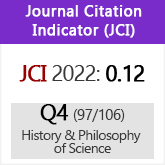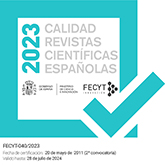War and plague in Athens. Review of the possible origin of the athenian epidemic of 430-426 BC
DOI:
https://doi.org/10.3989/asclepio.2019.01Keywords:
Athens, Peloponnesian War, epidemic, clinical, epidemiologyAbstract
The Peloponnesian War began in the year 431 BC. In the summer of the second year, the Peloponnese attacked the Attic Peninsula, and its inhabitants sought refuge inside the city walls of Athens. Days later, an unprecedentedly deadly plague spread throughout the city. The plague rampaged the city for the rest of the year and the following one, and made reappearances in both 427 and 426 BC. During five years, successive waves of the epidemic annihilated almost a third of the city’s population. The only source describing this outbreak is the work by Thucydides, an Athenian historian who lived through the epidemic, and who described the extent and impact of the plague in his second book of the History of the Peloponnesian War (47-52). The objective of this journal article is to review, with the methodological caution required to approach an illness that occurred more than 2500 years ago, the various medical theories proposed as the cause of this epidemic.
Downloads
References
Arrizabalaga, Jon (1999), "Medical Causes of Death in Preindustrial Europe: Some Historiographical Considerations", Journal of the History of Medicine, 54/2, p. 241-260. https://doi.org/10.1093/jhmas/54.2.241 PMid:10453685
Arrizabalaga, Jon (2002), "Problematizing retrospective Diagnosis in the History of Disease", Asclepio, 54 (1), p. 51-70. https://doi.org/10.3989/asclepio.2002.v54.i1.135 PMid:17191369
Artaud, Antonin, El teatro y su doble Barcelona, Edhasa, 2011.
Baziotopoulou-Valavani, Effie (2002), "A Mass Burial from the Cemetery of Kerameikos". En: Stamatopoulou, Maria and Yeroulanou, Marina (eds.), Excavating Classical Culture: Recent Archaeological Discoveries in Greece. Studies in Classical Archaeology I, Oxford, Beazley Archive, pp.187-201.
Bellemore, J., Plant, I.L. (1994), "Thucydides, Rhetoric and Plague in Athens", Athenaeum 82, 1994, pp. 385-401.
Bocaccio, Giovanni, Decamerón, Madrid, Cátedra, 2007.
Camus, Albert, La peste, Barcelona, Edhasa, 2002.
Conrad, Lawrence I., Wujastyk, Dominik (2000), Contagion. Perspectives from Pre-Modern Societies, Aldershot, Ashgate, p. XI.
Cunningham, Andrew (1991), "La transformación de la peste. El laboratorio y la identidad de las enfermedades infecciosas", Dynamis, 11, p. 27-71.
Cunningham, Andrew (2002), "Identifying Disease in the Past: Cutting the Gordian Knot", Asclepio, 54 (1), p. 13-34. https://doi.org/10.3989/asclepio.2002.v54.i1.133
Defoe, Daniel, Diario del año de la peste, Madrid, Impedimenta, 2006.
Demont, Paul (2013), "The Causes of the Athenian Plague and Thucydides". En: Tsakmakis, A., Tamiolaki, M. (eds.), Thucydides between History and Literature, Berlín/Boston, De Gruyter, pp. 73-87. https://doi.org/10.1515/9783110297751.73
Diodoro de Sicilia, Biblioteca histórica, libros IX-XII (traductor: Juan José Torres Esbarranch), Madrid, Gredos, 2006.
Durack, David, Littman, Robert, Benítez, Michael, Mackowiak, Philip (2000), "Hellenic Holocaust: A Historical Clinico-Pathologic Conference", The American Journal of Medicine, 109, pp.391-397. https://doi.org/10.1016/S0002-9343(00)00521-0
Gilbert, Thomas, Cuccui J., White, W., Lynnerup, N. et al (2004), "Absence of Yersinia pestis specific DNA in human teeth from five European excavations of putative plague victims", Microbiology, 150 (2), pp.341-354. https://doi.org/10.1099/mic.0.26594-0 PMid:14766912
Gomme, Arnold W. (1956), A Historical Commentary on Thucydides, II, Oxford, Oxford University Press.
Hope, Valerie M., Marshall, Eireann (eds.) (2000), Death and Disease in the Ancient City, London, New York, Routledge.
Hornblower, Simon (1991), A Commentary on Thucydides, I, Oxford, Oxford University Press.
Horstmanshoff, Manfred H.F.J. (1990), "The Ancient Physician: Craftsman or Scientist?", The Journal of the History of Medicine and Allied Sciences, 45, pp.176-197. https://doi.org/10.1093/jhmas/45.2.176 PMid:2193055
Jouanna, Jacques (2005), "Cause and Crisis in Historians and Medical Writers of the Classical Period". En: Van Der Eijk, P.H., Hippocrates in Context, Leiden, Boston, Brill, pp. 3-27.
Jouanna, Jacques (2006), "Famine et pestilence dans l'Antiquité grecque: un jeu de mots sur limos/loimos". En: Jouanna, J; Leclant, J.; Zink, M.(eds.), L'Homme Face aux Calamités Naturelles dans lÁntiquité et au Moyen Âge. Cahiers de la villa de "Kérylos", 17, París, pp. 197-219.
Kazanjian, Powel (2015), "Ebola in Antiquity?", Clinical Infectious Diseases, 16, September, pp.963-968. https://doi.org/10.1093/cid/civ418 PMid:26033924
Kliegman, Robert, Behrman, Richard, Jenson, Hal, Stanton, Bonita (eds.) (2009), Nelson. Tratado de Pediatría, (18ª Edición), Barcelona, Elsevier.
Kosak, Jennifer Clarke (2000), "Fifth-century Greek ideas on city and disease". En: Hope, Valerie M., Marshall Eireann (eds.), Death and Disease in the Ancient City, London, New York, Routledge, pp. 35-54.
Laín Entralgo, Pedro (1949), La historia clínica hipocrática (www.cervantesvirtual.com).
Laín Entralgo, Pedro (1970), La medicina hipocrática, Madrid, Revista de Occidente.
Leven, Karl Heinz (2004), "At times these ancient facts seem to lie before me like a patient on a hospital bed-Retrospective diagnosis and ancient medical history". En Hortsmanshoff, H.F.J. et al (eds.), Magic and Rationality in Ancient Near Eastern and Graeco-Roman Medicine, Leiden, Brill, p. 369-386 (citado en pág. 11).
Littman, Robert J., Littman, Michael L. (1969), "The Athenian Plague: Smallpox", Transactions and Proceedings of the American Philological Association, 100, pp.261-275. https://doi.org/10.2307/2935915
Littman, Robert J. (2009), "The Plague of Athens: Epidemiology and Paleopathology", Mount Sinai Journal of Medicine, 76, pp.456-467. https://doi.org/10.1002/msj.20137 PMid:19787658
Longmuir, Alexander et al (1985), "The Thucydides Syndrome. A New Hypothesis for the Cause of the Plague of Athens", The New England Journal of Medicine, 313 (16), pp.1027-1030. https://doi.org/10.1056/NEJM198510173131618 PMid:3900725
Longrigg, James (1980), "The Great Plague of Athens", History of Science, XVIII, pp.209-225. https://doi.org/10.1177/007327538001800303 PMid:11611095
Longrigg, James (1992), "Epidemic, ideas and classical Athenian society". En Ranger, Terence, and Slack, Paul (eds.), Epidemics and Ideas: Essays on the Historical Perception of Pestilence, Cambridge, Cambridge University Press, pp. 21-44. https://doi.org/10.1017/CBO9780511563645.003
Lucano, Farsalia o Guerra Civil (trad. Jesús Bartolomé Gómez) VI, 80-105, Madrid, Cátedra, 2003.
Lucrecio, De la naturaleza de las cosas (trad. Miguel Castillo Bejarano) VI, 1138-1286, Madrid, Alianza, 2016.
Mann, Thomas, Muerte en Venecia, Barcelona, Edhasa, 2010.
Manzoni, Alessandro, Los novios, Madrid, Cátedra, 2015.
Mitchell-Boyask, Robin (2009), "Plague and theatre in Ancient Athens", The Lancet, 373, 1, p. 374-375. https://doi.org/10.1016/S0140-6736(09)60123-9
Morens, David M., Littman, Robert J. (1992), "Epidemiology of the Plague of Athens", Transactions of the American Philological Association, 122, pp.271-304. https://doi.org/10.2307/284374
Morens, David M., Littman, Robert J. (1994), "Thucydides Syndrome" Reconsidered: New Thoughts on the "Plague of Athens", American Journal of Epidemiology, 140 (7), pp.621-629. https://doi.org/10.1093/oxfordjournals.aje.a117299 PMid:7942762
Morgan, Thomas E. (1994), "Plague or Poetry? Thucydides on the Epidemics al Athens", Transactions of the American Philological Association, 124, pp.197-209. https://doi.org/10.2307/284291
Muramoto, Osamu (2014), "Retrospective diagnosis of a famous historical figure: ontological, epistemic and ethical considerations", Philosophy, Ethics and Humanities in Medicine, 9, 10, p. 1-17. https://doi.org/10.1186/1747-5341-9-10 PMid:24884777 PMCid:PMC4049481
Nutton, Vivian (2004), Ancient Medicine, New York, London, Routledge. https://doi.org/10.4324/9780203490914
Ovidio, Metamorfosis (trad. Consuelo Álvarez y Rosa M. Iglesias) VII, 523-613, Madrid, Cátedra, 2005.
Papagriogorakis, Manolis, Yapijakis, Christos, Synodinos, Philippos, Baziotopoulou-Valavani, Effie (2006), "DNA examination of ancient dental pulp incriminates thyphoid fever as a probable cause of the Plague of Athens", International Journal of Infectious Diseases, 10, pp.206-214. https://doi.org/10.1016/j.ijid.2005.09.001 PMid:16412683
Papagriogorakis, Manolis (2007) "Ancient typhoid epidemic reveals possible ancestral strain of Salmonella enterica serovar Thyphi", Infection, Genetic and Evolution, 7, pp.126-127. https://doi.org/10.1016/j.meegid.2006.04.006 PMid:16765652
Plutarco, Vidas paralelas: Pericles-Fabio Máximo (traductor: Bernardo Perea Morales), Madrid, Gredos, 2010.
Pino Campos, Luis Miguel, Hernández González, Justo Pedro (2008a), "En torno al significado original del vocablo griego epidemía y su identificación con el latino pestis", Dynamis 28, pp. 199-215. https://doi.org/10.4321/S0211-95362008000100009 PMid:19230340
Pino Campos, Luis Miguel, Hernández González, Justo Pedro (2008b), "Los conceptos de peste y epidemia: semántica y lexicografía", Revista de Filología de la Universidad de La Laguna, 26, pp. 191-204.
Poe, Edgar Allan, La máscara de la muerte roja, Madrid, Ediciones Fénix, 2015.
Poole, J.C., Holladay, A. James (1979), "Thucydides and the Plague of Athens", The Classical Quarterly, 29 (2), pp.282-300. https://doi.org/10.1017/S0009838800035928 PMid:11619645
Rechenauer, Georg (2011), "Polis nosousa: Politics and Disease in Thucydides-the Case of the Plague". En: Rechenauer, G., Vassiliki P. (eds.), Thucydides-a violent teacher? Goettingen, V&R unipress, pp. 241-260.
Retief, Francoise Pieter, Cilliers, Lynette (1998), "The Epidemic of Athens 430-426 B.C.", South African Medical Journal, 88 (1), pp.50-53.
Romilly, Jaqueline (Trad.) (1991), Thucydide. La guerre du Péloponnèse, París, Les Belles Lettres.
Saramago, José, Ensayo sobre la ceguera, Madrid, Alfaguara, 1996.
Séneca, Edipo (trad. Jesús Luque Moreno) 110-201, Madrid, Gredos, 1980.
Tito Livio, Historia de Roma desde su fundación IV-VII (traductor: José Antonio Villar Vidal), Madrid, Gredos, 1990.
Tucídides, Historia de la Guerra del Peloponeso, (trad. Juan José Torres Esbarranch), Madrid, Gredos, 2008.
Van der Eijk, Philip (1991) "'Airs, Waters, Places" and "On the Sacred Disease": Two Different Religiosities?", Hermes 119 (2), pp. 168-176.
Virgilio, Geórgicas (trad. Tomás de la Ascensión Recio García) III, 474-566, Madrid, Gredos, 2010.
Wilson, Adrian (2000), "On the history of disease-concepts: the case of pleurisy", History of Science, 38, p. 271-319. https://doi.org/10.1177/007327530003800302 PMid:11624656
Woodman, A.J. (1988), Rhetoric in Classical Historiography: Four Studies, Londres, Croom Helm.
Zinsser, Hans (1935), Rats, Lice and History, New Jersey, Toronto, New York, London, Bantam Books. https://doi.org/10.1097/00000446-193506000-00044
Published
How to Cite
Issue
Section
License
Copyright (c) 2019 Consejo Superior de Investigaciones Científicas (CSIC)

This work is licensed under a Creative Commons Attribution 4.0 International License.
© CSIC. Manuscripts published in both the printed and online versions of this Journal are the property of Consejo Superior de Investigaciones Científicas, and quoting this source is a requirement for any partial or full reproduction.All contents of this electronic edition, except where otherwise noted, are distributed under a “Creative Commons Attribution 4.0 International” (CC BY 4.0) License. You may read here the basic information and the legal text of the license. The indication of the CC BY 4.0 License must be expressly stated in this way when necessary.
Self-archiving in repositories, personal webpages or similar, of any version other than the published by the Editor, is not allowed.















